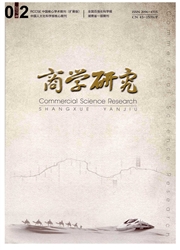

 中文摘要:
中文摘要:
依据中国实际经济情况,通过Smets and Wouters(2003)模型进行拓展,构建了一个DSGE模型,探究了中国财政政策变化对经济波动的不确定性影响。研究结果显示财政政策对经济波动呈现出不确定性的影响:①非生产性财政支出对产出的影响并不是一直保持着正向影响,也会存在负向影响,原因在于,非生产性财政支出的增加最终是通过以后的税收增加来偿还的,或是通过减少以后的财政支出来偿还,而这些行为又都会抑制经济增长;②消费税、劳动收入税与资本收入税对产出的影响并不是~直都是负向。其原因在于:当前税收的增加会降低政府债务水平,从而可以增加未来的财政支出或是减少未来的税收,这些政策对产出都是具有扩张效应。
 英文摘要:
英文摘要:
According to actual economic condition in China, the paper expands Smets and Wouters (2003)'s model to analyse the effect of fiscal policy on economic fluctuations. The results show: first, non-productive fiscal expenditure on output does not always have positive effect, there will be negative effect as well. The reason is that an increase in non-productive fiscal expenditure is ultimately repaid by future tax increases or by reducing the future fiscal expenditure. These behaviors will inhibit economic growth. Second, consumption tax labor income tax and capital income tax, which does not always have a negative effect on output. The reason is that increasing tax will reduce the level of government debt, which can increase the future fiscal expenditure or reduce future tax, and these policies have expansionary effect on output.
 同期刊论文项目
同期刊论文项目
 同项目期刊论文
同项目期刊论文
 期刊信息
期刊信息
